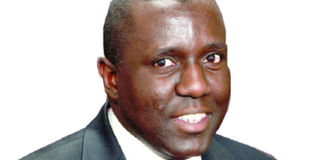Prime
Climate change makes front-line for the economy bottom-line

Ugandan coffee farmers are enjoying a brief respite in the last three years due to a remarkable recovery in global coffee prices. The cause, a triple pain inflicted on the global coffee supply; First frost conditions in Brazil followed by sub-optimal conditions. Second, Vietnam’s large base of 20 million bags is slowly shrinking partly due to the conversion of land use to more profitable rubber trees and aging coffee trees.
Most of the domestic coffee planting campaigns focus on the first seven years of production, where the coffee bush is young, lush, and vibrant. It is only recently that coffee stumping and systematic fortification of soils are taking root.
Third, the marginalised countries in the coffee chain including Uganda are challenging the conventional orthodoxy of western markets where farmers produce, bear the risk of price volatility, and now with climate change the horrendous rise in farmer inputs. They want more for their coffee.
In the case of Uganda, the Vietnam problem is a good one, as it allows Uganda breathing space to position its finer robustas in the Far East as it already has re-entered Southern Europe.
Other reasons are more complicated.
Palate appreciation of coffee varies from region to region. American coffee roasters market robusta using “masking methods” to arabicise the taste of most coffee brews. There isn’t simply enough robusta to go around.
In Uganda’s favour which earned $768 million from coffee in 2020/2021, is attention to robusta. Shrinking global inventories have limited stockpiling. Third-party buyers from the Middle East are arriving in the country unhappy with margins our robusta buyers, Egypt and Sudan are piling on our coffee.
Kenya next door is noticing. Coffee next door was invaded by three developments. First was the auction system that focused on the market more than the entire value chain. Second has been the mega-expansion of the Nairobi megalopolis; Nairobi is now a global 20 city stretching deep into Kiambu, Kajiado, and Machakos counties.
Most of the shiny mansions and bungalows being marketed are outside Nairobi Province. Visitors to Nairobi including well-heeled Ugandans buying in Ngong don’t realise they are buying outside “city” limits. Starbucks, the market leader in specialty coffee is bowing to the obvious and has entered the soluble coffee industry dominated by low-grade, small-screen robustas and coffee blacks.
But just like most of Uganda’s second biggest foreign exchange earner, tourism is functioning on auto-pilot, Uganda in the 2022/2023 Financial Year decided to transfer resources from NAADS to the Parish Model.
In the near-final reorganisation plan, it is proposing to fold UCDA, recently enhanced under the National Coffee Act, back into the Ministry of Agriculture.
The agriculture sub-sector comprises food, cash crops, extension services, and value-addition. For a sector that contributes 40 percent of GDP; is the largest employer and source of food, it has been running on “a reduced budget” as Uganda comes to terms with a decade of runaway borrowing to service domestic and external debt. Kenya in 2017 folded the Coffee Board into the Commodities Board and saw coffee production plunge. Uganda may make a big mistake folding coffee back into the ministry.
Outside the knowns, climate change is already putting a strain on the coffee industry. The weatherman is cagey, but its official rainfall totals countrywide with the exception of 2020 have been in decline since 2010.
The decline has been felt more in the lake region which continues to report sub-optimal totals. In the western region, still largely undisturbed ecosystems, they are reporting falling rainfall which has only been mitigated by fast-growing annuals, maize that is replacing millet and other natural fibers. The generous offering of bananas; a perennial crop is masking the falling production of beans, and groundnuts.
Most vegetables being carted to urban centres can only grow under heavy chemicals in wetlands as normal precipitation cannot support them. For coffee, where water is the fuel, the factory of the tree is an area where desktop decisions may lead to dangerous outcomes. Coffee enjoys a unique status as the most democratic crop, whose benefits are spread from the farm to the cup.
Mr Ssemogerere is an Attorney-At-Law and an Advocate




